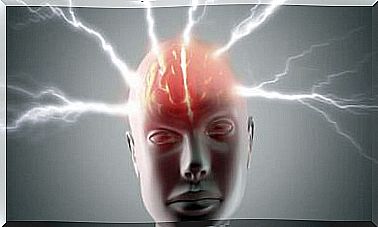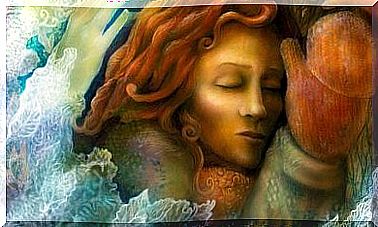Self-transcendence – Going Beyond Your Individual Self

The concept of self-transcendence is closely related to that of spirituality. Self-transcendence is seen as a complex characteristic of the human personality and essentially means transcending the individual self, that is, going beyond one’s own identity and understanding that you are a small part of something bigger. This is a process that has to do with your perception of yourself as an integral part of the universe.
Self-transcendence and spirituality
These two terms are closely related. Indeed, one of the inherent properties of self-transcendence is the expansion of the individual self. This is about moving towards something larger, more complex, even infinite, that tends to be divine or spiritual in nature.
Some people achieve self-transcendence through their belief in God, while others achieve it by taking various spiritual paths and recognizing and pursuing corresponding ideas. One way or another, she helps people find meaning in life, which further encourages them to transcend.
According to the Austrian psychiatrist Viktor Frankl, transcendence is deeply anchored in our spirituality, and spirituality is that part of humanity that distinguishes us from other species. According to him, no one could achieve completeness until he was able to surpass himself.
It is also worth mentioning in this context that while today’s researchers do not normally agree that spirituality is necessary for achieving self-transcendence, they are quite convinced that it is an important aspect in life for many people.
It can be said that human self-realization is a difficult goal that requires hard work on yourself. Self-transcendence, on the other hand, is a process in which you would focus on others instead of. It’s about bigger goals than your personal successes.
How to define self-transcendence
Abraham Maslow’s definition of self-transcendence
According to the psychologist Abraham Maslow , self-transcendence refers to the highest and most comprehensive level of human consciousness, behavior and, more as a means than an end, a connection to oneself, to people close to them, to fellow human beings in general, to other species, to nature and the cosmos.
In this sense, self-transcendence offers the individual what Maslow calls peak experiences, those in which personal concerns are neglected in order to observe what is happening from a broader perspective. It is about experiences that evoke strong positive emotions such as joy and peace and a well-developed awareness.
Maslow’s concept of self-transcendence is often not mentioned when citing his hierarchy of needs theory. Gradually, however, science is beginning to rethink: There are now approaches that place self-transcendence at the top of this pyramid.
The theory of self-transcendence according to Pamela Reed
Pamela Reed defines self-transcendence as the expansion of self-evident boundaries in three dimensions. According to their theory , people can be viewed as open systems and the only obstacle between them and self-transcendence are the limits they set for themselves.
Of course people need some conceptual restrictions, but the expansion of their self outward creates a basic state of connection with the environment and promotes a sense of wholeness that otherwise could not be achieved. Reed’s theory goes on to say that this state is a stage when people feel fulfilled and have found meaning in their lives.

Self-transcendence and personality according to Claude R. Cloninger
As we mentioned earlier, self-transcendence is a personality trait that is related to experiencing spiritual ideas. This is one of the personality dimensions listed in Claude R. Cloninger’s temperament and character inventory.
There are four temperaments and three character dimensions in Cloninger’s temperament and character inventory. Self-transcendence is for a personality trait that relates to spiritual aspects of the individual self. According to Cloninger, it can promote acceptance, identification or spiritual union with nature and its origins .
Viktor Frankl’s values
Furthermore, we cannot ignore the values that Viktor Frankl pointed out to experiment with self-transcendence. These universal values that people from very different cultures practice are as follows:
- Creative values: giving something back to the world. This value includes the conscious and creative commitment to productive work. This means using your unique talent and creative ideas to make a contribution to create something valuable for society and thus make a difference in the world.
- Experience : The experience includes appreciating relationships and the beauty around you, being grateful.
- Attitudes : Taking a stance on fate is sometimes not an easy task. However, your own attitude is the driving force when you have to deal with given adversities. Maintaining your integrity during difficult times is the last line of defense in gaining a sense of freedom and realizing the meaning of life.
How self-transcendence can be achieved
It is not that easy to achieve self-transcendence. It is the highest level of human development, beyond Maslow’s concept of self-actualization. However, there are a few things you can do to help drive this development. Stephanie Flood suggests five creative, Buddhism-inspired ways to achieve this:
- Practice basic meditation techniques.
- Feed yourself knowledge and wisdom to increase your self-confidence.
- Do not be afraid of the journey that is ahead of you.
- Find your own spiritual techniques to achieve the ultimate purpose and ideal self.
- Reinforce the positive vibrations by settling in an environment that promotes transcendence.
Chinese psychologist Paul Wong goes on to explain that when you do something bigger than yourself, you practice self-transcendence. You only become the best version of yourself if you take care of others.
So it doesn’t matter what your religious beliefs are: Self-transcendence satisfies your deepest spiritual needs for connection and transcendence.









